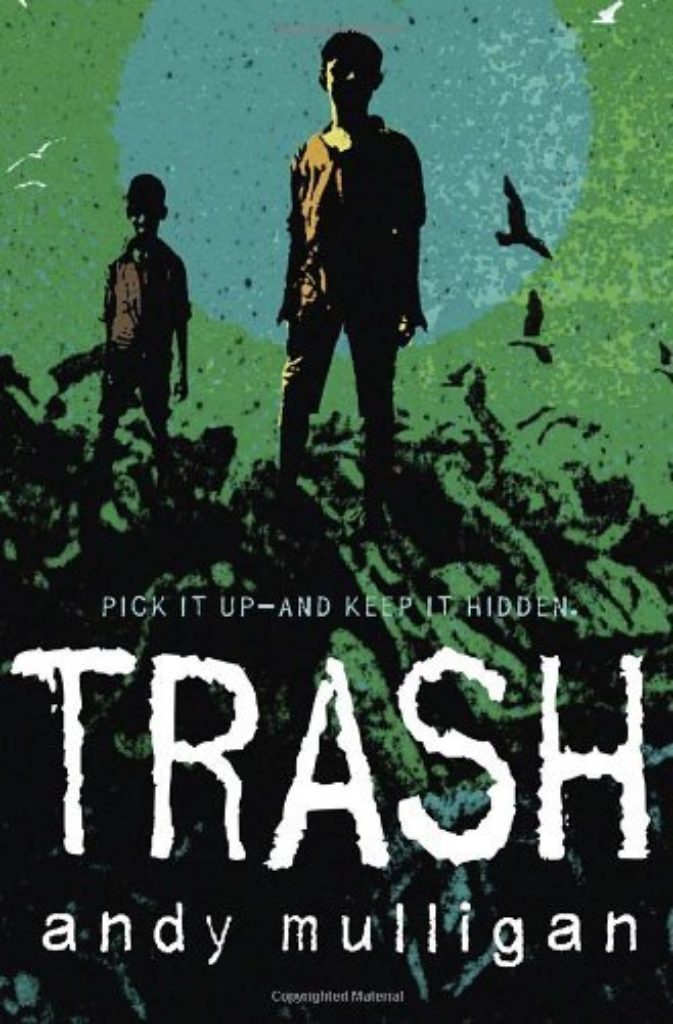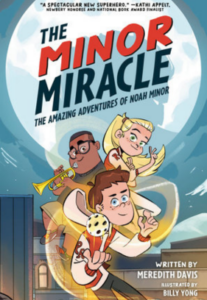Fourteen-year-old Raphael Fernandez is a dumpsite boy. Like so many children in his unnamed developing nation, Raphael survives by sifting through the massive piles of squalor that make up his city, Behala. He almost never finds anything but human muck.
Then one day, while working with his friend Gardo, he discovers a leather bag with 1,100 pesos inside. The bag also includes a map and a key. When the police start swarming around the dumpsite and asking questions about a missing bag, the boys realize there’s more at stake than just the money.
Raphael’s aunt slips and tells the police that Raphael said he found something interesting. The police begin watching him. The boys enlist the help of their fellow worker Jun-Jun, a small, skeletal boy known to most people as Rat because he has no family and lives with the creatures. Raphael and Gardo ask him to hide the bag for them.
While the police pay other citizens of Behala to look for the bag, the three boys discover that the key belongs to a locker in the train station. They sneak in, open the locker and find an envelope addressed to a man named Gabriel Olondriz in Colva Prison. The letter, signed by a man named Jose Angelico, contains a message for Gabriel and a strange numerical code the boys can’t decipher. They learn that the police recently killed Jose Angelico.
The police arrest Raphael and take him to headquarters. There, they beat, threaten and ridicule him. He firmly repeats his lie that he knows nothing about the bag they want. They eventually let him go.
Father Juilliard and Sister Olivia, two relief workers for a local mission school, convey their part of the story involving Raphael, Gardo and Rat. Rat, in particular, has spent time at the school getting to know the workers. The workers knew that the kids they encountered in Behala weren’t always trustworthy, but they tried to help as best they could. Sister Olivia shares that the boys came to her and begged for her help. They said Gardo needed to see his grandfather in Colva Prison. She recounts how she took Gardo to Colva Prison and paid bribe money so they could see the man.
After walking through the horrible, squalid facility in tears, Olivia finds herself in a room with Gardo and a prisoner who seems not to know the boy at all. She discovers Gardo has deceived her so he can share the contents of a letter with Gabriel. Gabriel, who is dying, tells them he had evidence that an important official named Senator Zapanta stole $30 million of international aid money. Gabriel was falsely convicted of other crimes and left to rot in prison because he knew too much.
Jose’s letter offers cryptic news. “It is accomplished,” it says. Gabriel cries happy tears upon hearing this. Gardo tells Gabriel about the code, and Gabriel says the answer is in the old Bible he keeps with him. A guard, standing nearby, overhears some of their conversation and takes Gabriel’s Bible for himself.
As Raphael and Rat wait for Gardo and Sister Olivia, they remember the part of the letter in which Jose says Gabrie’s soul would sing if he could see Zapanta’s house now. They decide to go to the house to see what that means. They visit the luxurious property and notice several police cars. They learn from a gardener that Jose Angelico, who had worked for Zapanta and earned his trust, took $6 million in cash off the property in an old broken refrigerator.
Gabriel dies in prison shortly after. Still being watched by the police, the boys flee their city. They decide they must find the prison guard and pay him off so they can get the Bible. Rat returns to the mission school and steals money from the safe. He’s taken small amounts for some time and knows how to figure out Father Juilliard’s passwords. The guard agrees to meet them to exchange the Bible for money. When Gardo arrives to meet the guard, Gardo learns it’s a trap for the boys. He still manages to grab the Bible and run as the police pursue him and the other boys waiting nearby.
Once safely reunited, the boys crack the code in the Bible. The code directs them from page number to line number to the place a word is found in a sentence. The clues lead them to a large cemetery on the Day of the Dead. This is a significant holiday in their culture, where families hold all-day vigils and parties in the cemetery, waiting for their dead to come back and visit. The boys find Jose’s family plot. They know he had a son and wife who died, but they’re sad to see that the 8-year-old daughter the letter mentioned has apparently died, too. There is a fairly new grave with her name, Pia, on it.
When they find a hungry-looking girl sitting on the gravestones, they discover Pia is alive. She has come to the cemetery, hoping to see her father’s spirit. They realize Jose must have buried the money in a grave marked with Pia’s name before he was killed. They help Pia get food and a bed before breaking into the coffin late that night. When they find the $6 million, they promptly return all they took and more to the mission school. Then the boys joyfully spread the cash all over their dumpsite so the townspeople can have the pleasure of finding it. Raphael, Gardo, Jun-Jun (who no longer goes by “Rat”) and Pia fulfill Jun-Jun’s dream. They return to beautiful Sampalo, far from Behala, and start a fishing business.











